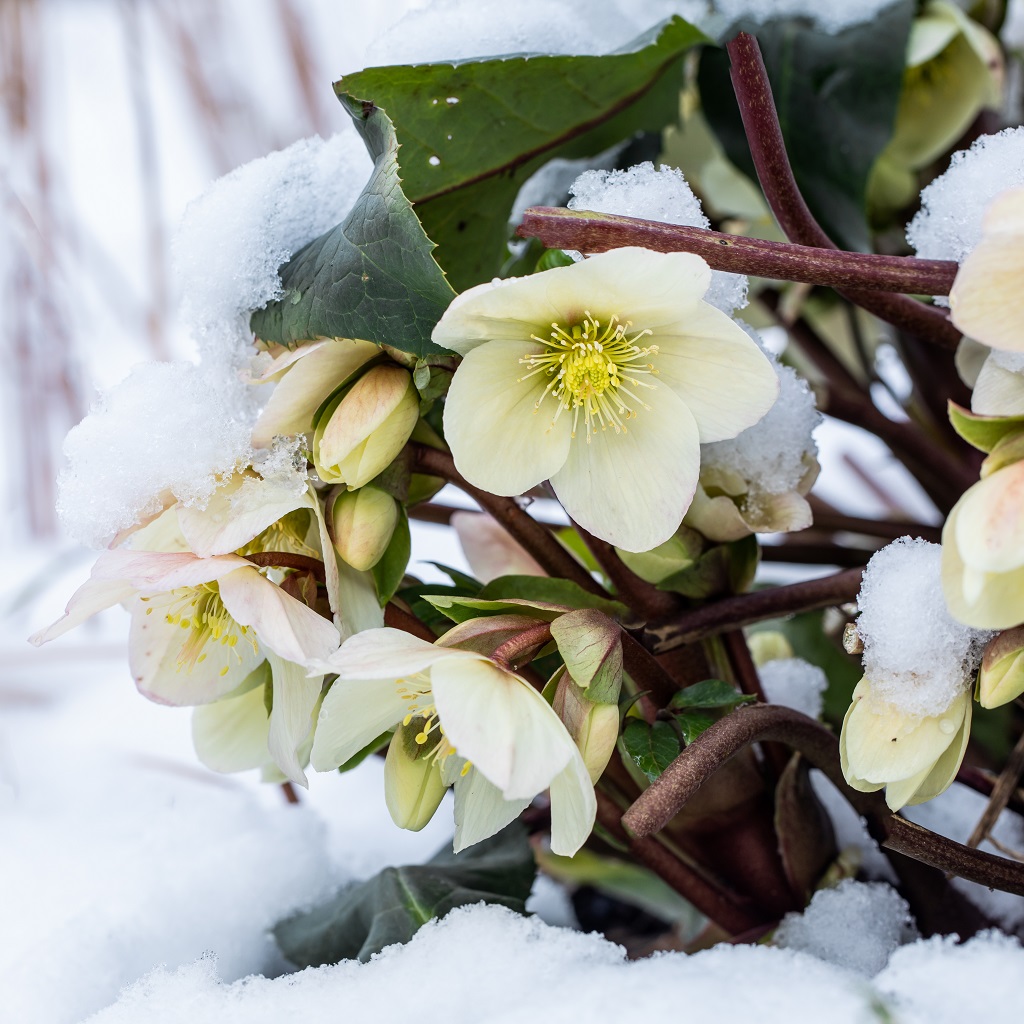To ensure healthy perennials during winter, focus on watering before the ground freezes, removing dead or dying foliage, applying mulch, and potentially pruning or dividing plants as needed. It’s also important to consider the specific needs of different perennial species and their tolerance to frost and freeze.
Here’s a more detailed guide:
- Watering:
- Water thoroughly before the ground freezes: Perennials need adequate moisture to survive the winter. Ensure the soil is well-saturated before the first freeze.
- Continue watering if the ground remains unfrozen: Keep watering as long as the ground hasn’t frozen solid, especially if you’re in a mild winter zone.
- Dead Foliage Removal:
- Remove dead or dying foliage: This helps prevent disease and ensures the plant’s energy is focused on surviving the winter.
- Consider cutting back stems after the first frost or light snow: This can help protect the crown of the plant from frost damage and encourage healthy growth in the spring.
- Mulching:
- Apply a layer of mulch around the base of perennials: Mulch helps insulate the soil and protect roots from freezing temperatures.
- Use loose organic mulch: Shredded leaves, bark chips, pine needles, or straw are good options.
- Avoid using mulch directly against the stems of the plants: This can trap moisture and lead to rot.
- Pruning and Dividing:
- Consider pruning some perennials after the first frost: This can help prevent winter damage and encourage new growth in the spring.
- Divide and transplant overcrowded perennials in early to mid-fall: This can help prevent overcrowding and ensure the health of the plants.
- Remove dead or dying foliage: This helps prevent disease and ensures the plant’s energy is focused on surviving the winter.
- Specific Perennial Needs:
- Bearded Irises: Do not mulch bearded irises, as it can lead to rot.
- Tender Plants: For plants that are not fully hardy, consider adding a small cage around them filled with mulch or chopped leaves for extra protection.
- Frost Sensitivity: Some perennials, like Hostas and Bleeding Hearts, are sensitive to frost and may need to be covered to protect their foliage and flowers.
- Other Considerations:
- Stop Fertilizing: Stop fertilizing perennials in mid- to late summer to allow them to harden off for winter.
- Weeding: Continue weeding as long as possible, even after the first frosts or light snowfalls.
- Planting: Consider planting new perennials in fall if desired.

Leave a Reply